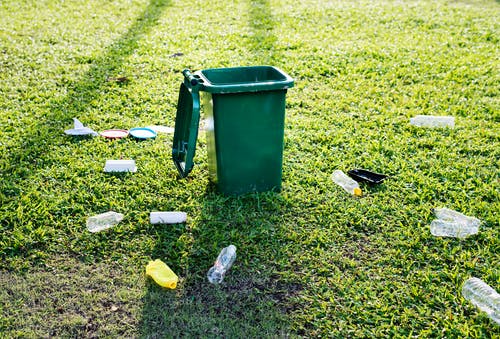Opinion
- There have been reports in recent media, that while some members of society diligently separate their trash and take them to the necessary recycling areas, most of the garbage never ends up being recycled writes Yasmine Miemiec, managing director of 5inc.
This is particularly so in certain municipalities where there is a prevailing apathy to separate garbage and send it to the appropriate place for recycling. It is far easier for them to dump garbage at a landfill.
The good news is that our plastic recycling is up to 43% and we have overtaken Europe in these statistics. This is due to the broad international conversation that is happening around the dangers of plastic. But, how can this percentage increase and good be achieved if our recycling is not actually recycled?
Education is key
Government needs to start working with corporates to find creative solutions to the problem of rubbish piling up, especially in townships. There should also be a bigger push from corporates to take environmental awareness and training to townships and rural areas.
Unemployed people should be trained to find ways to generate income from rubbish to mitigate problems with service delivery. For instance, rather than organic waste being thrown into garbage bags, which are then left on pavements to rot, this waste material can be turned into a beneficial product like compost.
A waste transformation environmental campaign is sorely needed. Employees in corporates are being sent to attend workshops to learn how to reduce water consumption, save energy due, and calculate their carbon emissions as per the recent implementation of the Carbon Tax law. This knowledge can and should be transferred to the townships.
Upcycling – key to waste reduction
Upcycling is a good way to reduce waste and forms part of the Recycle, Reuse and Reduce concept. Upcycling also provides the added benefit of creating employment. For every person employed through upcycling projects, five people are fed. South Africa has been focused on the recycling part of the mantra, and now needs to concentrate on the reuse and repurposing part that is known as upcycling.
For instance, the mesh-type bags that pack onions and oranges are made into baskets, which are then sold, and an income is generated. Eco-bricks are made from filling two-litre cool drink bottles with anything from Styrofoam to chip packets. This has a knock-on effect where everyday items can be created into new products worth selling thereby creating job opportunities. A weaving company collects fabric offcuts, and someone has turned these offcuts into blankets for feral cats.
Jobs created by upcycling can be as frivolous as a necklace or something more practical like refashioning a tin can to create a candlestick holder. Currently, we have a throwaway mentality in our society where it is considered admirable to dispose of everything that is broken. We need to change this mindset to one where we raise the question: what can we transform this garbage into to create a new product?
Upcycling and unemployment – can corporate”s bridge the gap?
Corporates can contribute to upcycling initiatives. Instead of purchasing gifts produced in other countries for their conferences, they can look closer to home and source gifts that are upcycled, sold by somebody who desperately needs the income right here in South Africa.
Corporate gifting is a huge market for upcycling. One normally receives a lanyard and a memory stick, which are in abundance now and rather cliché. Corporates could look at gifting a plant that is contained in a glass jar, which was previously thrown away, inspired by a community that needs the money.
Internationally, the Netherlands, Scotland, England and the Scandinavian countries have moved the conversation to upcycling. South African organisations need to ‘get with the programme’ because our planet is running out of time.
Locally, it is estimated that our landfills will be filled in five years’ time and then we really are in trouble. The Carbon Tax Act aims to assist in the reduction of greenhouse gases generated by the disposal of corporates’ waste but only from an emissions perspective.
Corporates, as well as the general public, need to be aware of the waste that they create, what is being recycled and look towards upcycling as an answer to help our environment and our planet as a whole.

About the author: Yasmine is passionate about both social development and the environment, and my business 5Inc reflects this. 5Inc is a Project Implementation company operating in the areas of B-BBEE implementation and of corporate wastereengineering.
This article was originally published on ESI Africa and is republished with permission with minor editorial changes.















